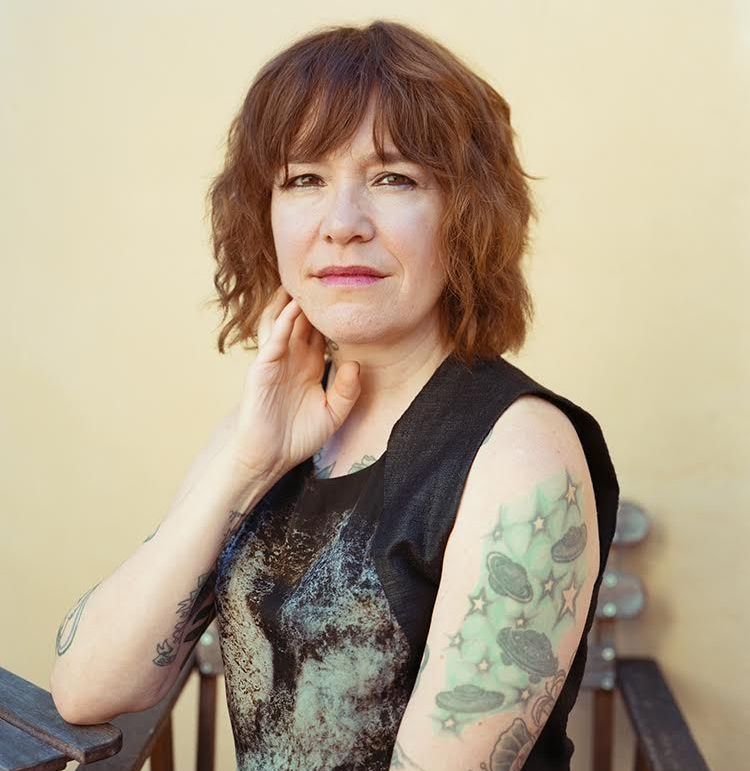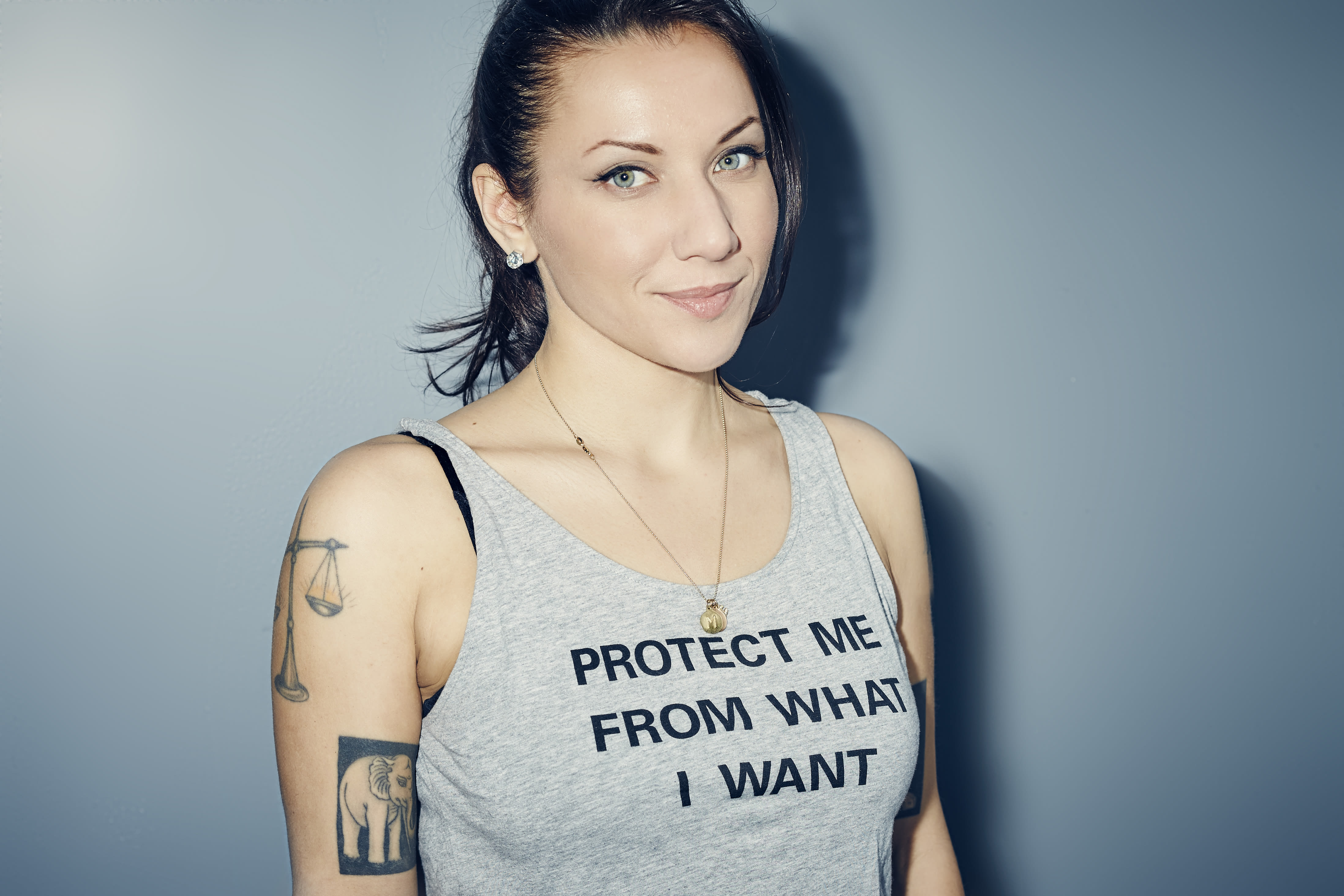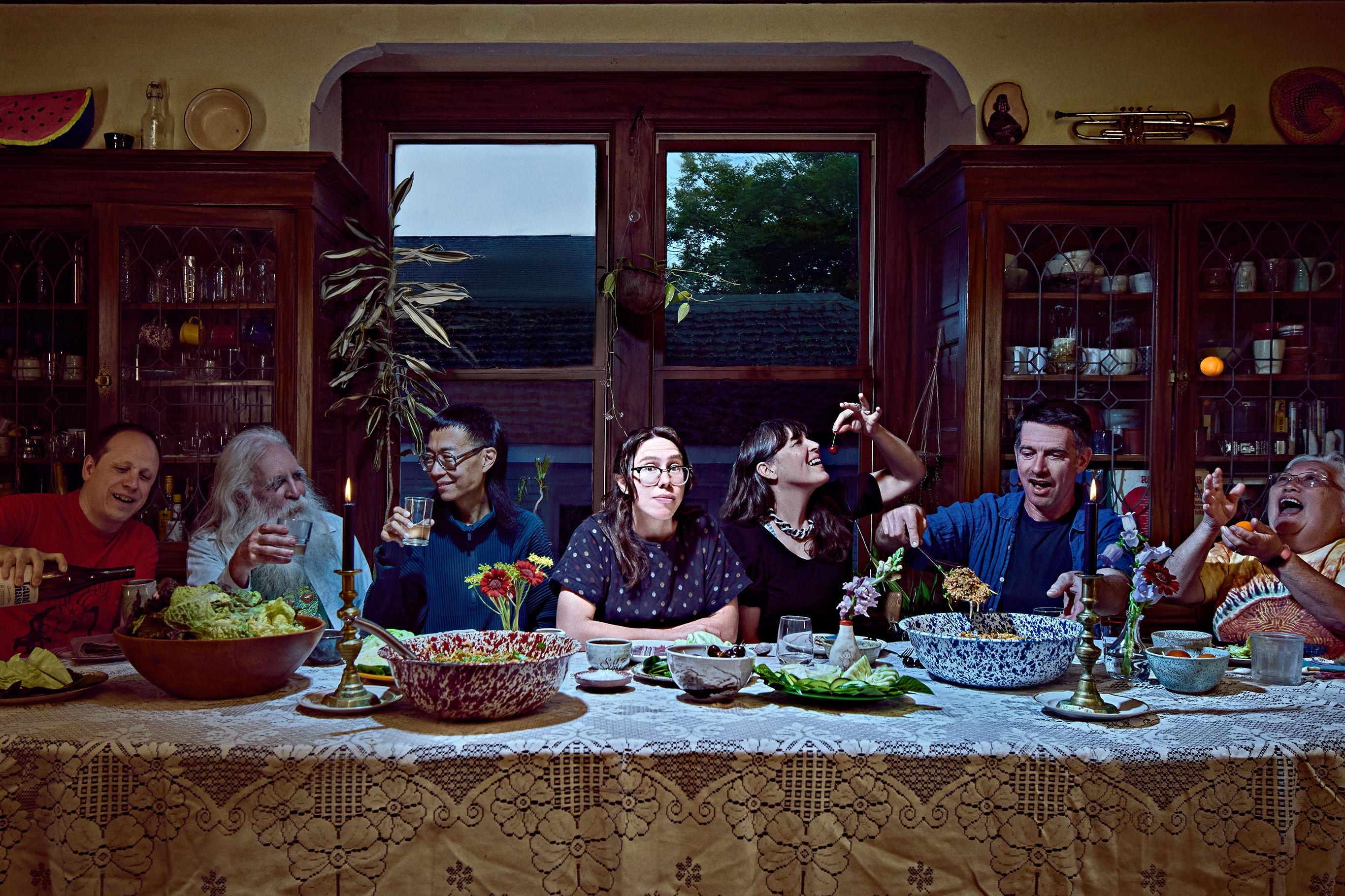Michelle Tea Talks Tarot, Writing Sober, and the Hazards of Memoir

Michelle Tea
Image: Courtesy Gretchen Sayers
Michelle Tea is endlessly fascinated by memoir. The prolific author and literary organizer has written five memoirs, plus a memoir-fiction mashup. What keeps her coming back to the form?
“That is the mystery,” Tea says. “I don’t know. Mental illness? Addiction? OCD? I have no idea why it is the form that most compels me.”
It’s not the only form Tea works in—the Angeleno has also written (and performed) poetry, published a young-adult fantasy trilogy and a tarot guide, and has just taken a foray into children’s books.
Tea will be in Portland this weekend for the annual conference of the Association of Writers & Writers Programs—the largest literary event of its kind in the country, with some 12,000 attendees swarming our fair city for four days of readings, panel discussions, and schmoozing. But even if you’re not shelling out for admittance to that gathering (passes start at $45), there are more than 200 (yes, seriously) offsite events happening around the city from March 26–31, many for the low, low cost of free.
For her part, Tea has assembled a bang-up slate of writers for a reading on Friday, March 29, at Psychic Sister, Northeast Alberta’s witchy one-stop shop for astrologically themed sweatshirts, tarot decks, and crystals. The lineup includes Portland illustrator Nicole J. Georges of graphic memoir Fetch, acclaimed poet Jericho Brown, Sick author Porochista Khakpour, arts consultant Beth Pickens, writer and AIDS historian Sarah Schulman, Hip Mama founder Ariel Gore, and Whiting Award winner Brontez Purnell. And that’s just half the list. “It’s a very Sister Spit-esque reading,” Tea says, referencing the queer spoken-word collective and showcase she founded in 1994. “We’re all going to have a really good time and remember why we’re writers.”
In advance of the reading, we talked with Tea about the hazards of memoir, tarot, and what going sober taught her about writing and discipline.
In your book Black Wave, your narrator—who is also named Michelle—says that "being a writer of memoir [is] one of the most violent and anti-Buddhist things a person could do with their life." What's so rough about memoir?
Sometimes you're trying to mine your life for material that isn't there. I get asked a lot to write about being a parent, because you would think there's so much to write about, but it's actually quite boring or it's already been written about. So there are these funny situations where you're desperately trying to mine some gem of wisdom from your life, and sometimes it's just not there.
And you're cementing yourself a little bit as a character, and that can get weird because you're not a character: You're a person and you grow and you change. And sometimes when you are a memoir writer and you've written your personal narrative over and over again, you believe in your story a little bit too much. You’re not providing yourself with the room for your perspective to shift.
When you write about alcohol or drugs, is there a way in which you're reliving that drinking or drug use?
I wish! That would be so awesome. That would be a great way to work it all out. It doesn't make me feel like that at all. The allure of writing about being fucked up is really tricky, because it's interesting up to a point and then it can get very cliche and very boring. Am I flogging a dead horse? Am I glamorizing something that's not very glamorous? I don't want the fact that something extreme happened be a stand-in for an actual story. That's always the risk when you're writing about something extreme. It’s like, do you think because they're extreme situations that makes them inherently interesting? But it's not—you still need to craft a story. There still needs to needs to be something underneath that.
How did your writing process change when you stop drinking?
The biggest change was that I realized how hard writing is. It's really hard to stay in your seat and stay with your story. I always drank while I wrote, and I loved drinking so much that the drinking kept me in my chair, writing. And I loved smoking so much that I loved to sit and smoke and write. So I had these vices that created this sort of excellent, boozy cloud around me and I was really happy. But without that, it's easy to be distracted, it's easy to get frustrated. It's easy to space out and start staring at the wall. Alcohol, while it worked, allowed me to keep this focus on what I was doing. It also obliterated my inner critic. And your inner critic is your worst obstacle to writing. I had to learn what my writing process was sober, and I learned that it's a little harder and it requires real discipline and not the fake discipline of the drinking.
Black Wave mashed up memoir and dystopian fiction. How did that book come about?
That project was such a mess. It started as something completely different. It started as an apocalyptic story based on the song cycles of [David Bowie's] Ziggy Stardust album, about a girl who was trying to become a pop star. And I had been in a relationship with somebody who was trying to be a successful musician, and once we broke up, I realized, I don't care if this girl becomes a pop star! I realized I actually wanted to write about that relationship. With the breakup, I felt this explosion of inspiration to tell that story. As it happened, the person I was writing about became super upset when they found out I was writing about them, which I didn't expect. After a moment of feeling defensive, I realized it wasn't necessarily in my best interest to work on a project that kept me tied to my ex so overtly. So I [thought], what would happen if I just let it get as weird as possible, if I ripped out what was the spine of the story to see what was left behind, and even have that excision become part of the story itself? I found that the weirder I let it get, the more inspiring it was.
You've also written a guide to tarot called Modern Tarot. What interested you in that project?
I've been reading tarot cards since I was 15, and I've long had to put my own spin on it, just to make it more relevant for my actual life. I've thought for a long time that we needed a new batch of tarot books that actually speak to contemporary experience and that pull it out of the dusty velvet curtains of yore. A lot of them have this '80s feel to them.
What was that writing process like?
I [obsessed over] the various cards. The tarot deals in extremes, in extreme imagery. But our lives aren't that extreme all the time. So you need to be able to interpret the cards if somebody is going through a major life crisis and also for the times they're not, where the ups and downs are a little bit smaller. So I tried to hold both of those possibilities in mind when thinking about what the cards might mean.
What's next for you?
I have a series of kids' astrology books coming out. They're really cool. They're illustrated by Mike Perry, who's a really groovy artist. The first one is called Astro Baby and it's out next month. And then each sign will get their own book, and those will start coming out as the sun moves into that sign in real life.
You've done young-adult writing, but is this your first venture into children's books?
Yeah. And I have another one coming out inspired by Drag Queen Story Hour. It's a story of a brother and sister who are doing gender play in their house and they don't really think they can bring it outside their house. And then they're visited by this magical drag queen in a flying car who takes them to Drag Queen Story Hour.
A Vision: Readings with Michelle Tea & Guests
7 p.m. Fri, Mar 29, Psychic Sister, $25




